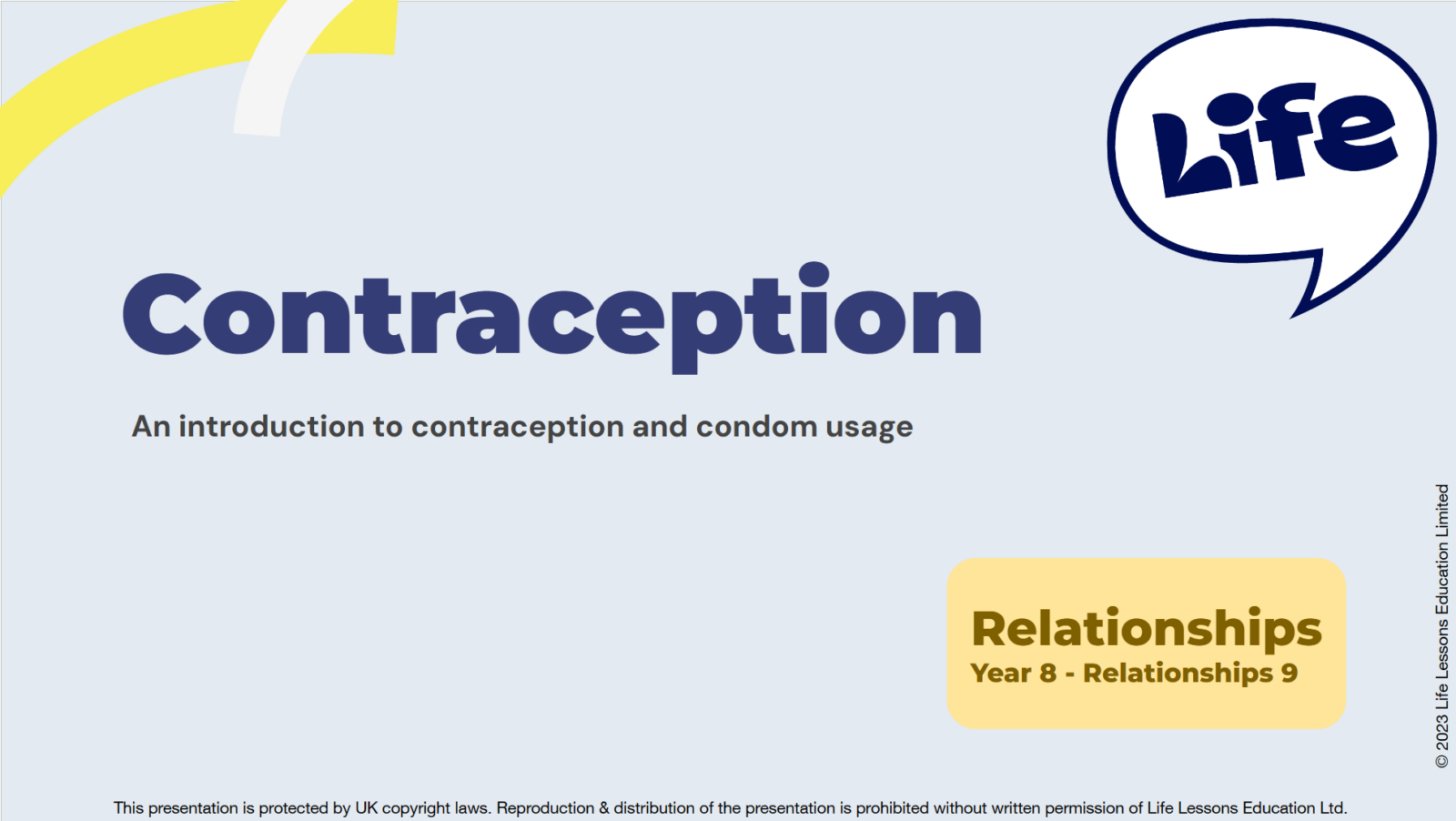RSHE explained for Parents/Guardians
This page is designed to support Parents/Guardians to understand the subject ‘Relationships, Sex and Health Education’ (RSHE) which has to be taught by law in all Secondary schools in England. We aim to help you understand why the subject is important, what is included and the role you can play in your young persons education.
It is likely your child attends a school that partners with us at Life Lessons so we will explain our approach here and have included a selection of sample lesson materials for you to view.
Note all information here relates to Secondary education only (KS3 & KS4)
Why RSHE matters
A goal of education is to equip young people with the skills and knowledge to be successful in life. The definition of ‘success’ is different for us all, it could be that a rewarding career or having a family are important.
Whichever path our young people choose to take their academic qualifications alone will only get them so far. They also need life skills and knowledge in order to make good decisions, build strong and healthy relationships, understand and look after themselves and to stay safe on their journey.
Relationships, Sex and Health Education (RSHE) is a subject taught in school where young people learn these skills, where they learn about themselves, their values and consider the perspectives of people different from themselves as they do so.
-
An outstanding RSHE provision supports your child to:
-
Be safer in school, out of school and online.
-
Develop the knowledge and skills to look after themselves in the world.
-
Respect others in the community and in wider society.
-
Conduct healthy relationships of all kinds.
-
Read between the lines of what they see online.
-
Gain critical thinking skills to support good decision making.
-
Build vocabulary and confidence to talk about matters that affect them now and their lives ongoing.
-
Practice reflection skills.
-
Become an active listener with excellent oracy skills.
Statutory requirements
In 2020 RSHE became compulsory in schools. In order to make the curriculum inclusive for all, the Department for Education consulted with parents, young people and professionals. A particular focus in the requirements was on educating young people to have healthy and consensual relationships (previously, only sex education was compulsory and was covered mainly in science).
Visit the Dept for Education website for the full statutory requirements in secondary education
We include below a summary, by the end of secondary school pupils should know the following:
- About different types of committed, stable relationships.
- How these relationships might contribute to human happiness and their importance for bringing up children.
- About marriage and long-term relationships including legal rights.
- The roles and responsibilities of parents with respect to raising of children.
- How to seek help and support others in unsafe relationships.
- The characteristics of positive and healthy friendships (including online).
- How stereotypes are damaging and the legal rights and responsibilities regarding equality
- How to show respect towards others and show tolerance of other people’s beliefs.
- About types of bullying, the impact of bullying, responsibilities of bystanders to report bullying and how and where to get help.
- Criminal behaviour within relationships including violence and coercive control.
- Sexual harassment and sexual violence and why these are always unacceptable.
- The concepts of, and laws relating to, sexual consent, sexual exploitation, abuse, grooming, coercion, harassment, rape, domestic abuse, forced marriage, honour-based violence and FGM, and how these can affect current and future relationships.
- How people can actively communicate and recognise consent from others, including sexual consent, and how and when consent can be withdrawn (in all contexts, including online).
- Their rights, responsibilities and opportunities online.
- About online risks, including the sharing of materials.
- What to do and where to get support for any issues.
- The impact of viewing harmful content specifically.
- Sexually explicit material and its impact on future relationships.
- Criminal behaviour related to indecent images.
- How information is collected, shared and used online.
- How to recognise the characteristics and positive aspects of healthy intimate relationships.
- That all aspects of health can be affected by choices they make in sex and relationships.
- The facts about reproductive health, including fertility and menopause.
- That there are a range of strategies for identifying and managing sexual pressure.
- That they have a choice to delay sex or to enjoy intimacy without sex.
- The facts about the full range of contraceptive choices, efficacy and options available.
- The facts and choices around pregnancy including miscarriage, adoption and abortion.
- How the different sexually transmitted infections (STIs), including HIV/AIDs, are transmitted, how risk can be reduced through safer sex and the importance of and facts about testing.
- How the use of alcohol and drugs can lead to risky sexual behaviour.
- How to get further advice, including how and where to access confidential sexual and reproductive health advice and treatment.
Pupils should be made aware of the relevant legal provisions when relevant topics are being taught, including for example:
- Marriage
- Consent, including the age of consent
- Violence against women and girls
- Online behaviours including image and
Information sharing (incl. nudes and sexting)
- Pornography
- Abortion
- Sexuality and gender identity.
- The information they need to make good decisions about their own health and wellbeing.
- How to seek support as early as possible from appropriate sources.
- About self-control and self-regulation.
- About the stigma attached to health issues, especially mental health.
Key facts about the menstrual cycle including what an average period is, about a range of menstrual products and the implications for emotional and physical health.
Who does the guidance apply to?
| Curriculum focus | A legal requirement | Optional but recommended |
| Relationships Sex and Health Education (RSHE) | All schools providing secondary education years 7-11, including: – All through schools including academies and free schools – Middle schools – Independent schools – Alternative provisions and pupil referral units (PRUs) – Non-maintained/ maintained special schools | The statutory requirements do not apply to sixth form colleges, 16-19 academies or Further Education (FE) colleges. Although we would encourage them to support students by offering these subjects. |
| Health Education | All maintained schools including: – Schools with a sixth form – Academies – Free schools – Non-maintained special schools – Alternative provisions and pupil referral units (PRUs) | The statutory requirement to provide Health Education does not apply to independent schools. PSHE is already compulsory as independent schools must meet the Independent School Standards as set out in the Education (Independent School Standards) Regulations 2014. |
Who are Life Lessons
Life Lessons was co-founded by Nicole and Jamie in 2019 after recognising the challenges schools would face following the UK government’s changes to the statutory requirements for teaching RSHE in schools.
We aspire to a world where all young people are equipped to be healthy, make good decisions and navigate the social and emotional complexities of life and we aim to do this by supporting schools to implement a whole-school approach to RSHE.
Life Lessons are proud recipients of the Fair Education Alliance award for Innovation (2020) and Scaling award (2023)’. We are committed to supporting all young people to get the foundational skills and knowledge to lead healthy successful lives.

How do you know if your child’s school works with Life Lessons?
If you see this symbol on your child’s school website then they are a Life Lessons school, and if they aren’t please do introduce us.
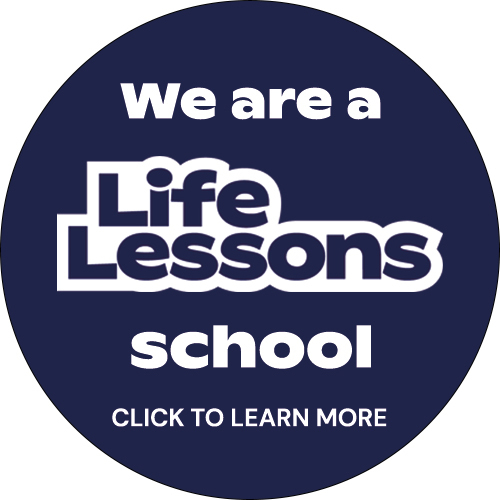
How we work with your child’s school
Life Lessons schools get access to a range of materials including:
- A full set of 1 hour lessons to deliver upon your statutory requirements
- Mini lessons for use in form time and assemblies that are based on topical/current affairs
- Training for teachers
- A full video library of expert and peer videos
Within a school the PSHE/RSE Lead decides on what will be taught to who and when. To do this they take into consideration statutory guidance which says what has to be taught. To plan when it is taught they will typically consult with parents, teachers with an awareness of the students and look at regional data to localise their teaching to the needs of young people in that area. For example if knife crime is prevalent then more emphasis will be placed on that issue.
We are there to support and empower the PSHE Lead, we see our role as a partnership between us and the school.

Our principles
- Our video resources model discussion for students to support them to build their oracy skills in a safe environment.
- We include discussion prompts throughout our lessons so that teachers can facilitate healthy discussion in the classroom
- Unlike other providers, we update our materials ongoing so our lessons reflect what’s going on in the world and in the lives of young people.
- Our peer video resources show a diverse group of young people discussing their experiences and opinions on a wide range of topics. Students are able to connect with these young people and hear from a variety of perspectives.
- Our weekly ‘In the News’ lessons allow students to engage with and discuss topical issues that are relevant to them and their lives.
- We use inclusive language and scenarios in our materials to represent all experiences in our diverse society. This includes the young people in our videos who are from a variety of different backgrounds and represent different sexualities, religions and cultures.
- We follow the Ofsted guidance around compliance with requirements of the Equality Act 2010 through resources that support all students to understand the importance of equality and respect. This includes specific teachings about protected characteristics such as race, religion and sexuality as well as representing all viewpoints in our materials.
A note on age appropriateness
Schools must be sensitive to teach topics at a time that will most benefit the safety and development of the child. The maturity and development of children varies hugely and this is influenced many factors including:
- A child’s homelife – language and openness modeled by parents/carers
- The influence of other people including friends and older siblings
- Access to technology and the world of adult focussed content it opens up
- Neurodivergence
A school and the PSHE lead will be adapting materials based upon their understanding of pupil needs and in consultation with parents.
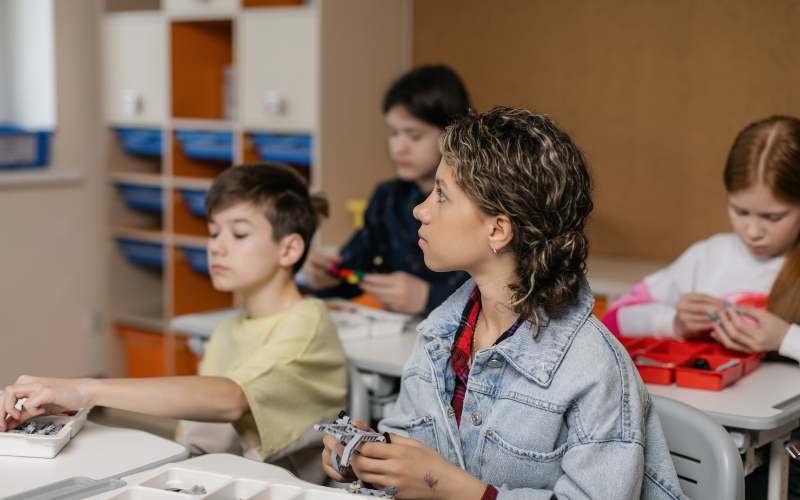
KS3: Bullying
Here is a year 7 lesson on identifying and challenging bullying. The lesson contains lots of discussion prompts to encourage students to build their oracy skills and share their thoughts about such an important issue.
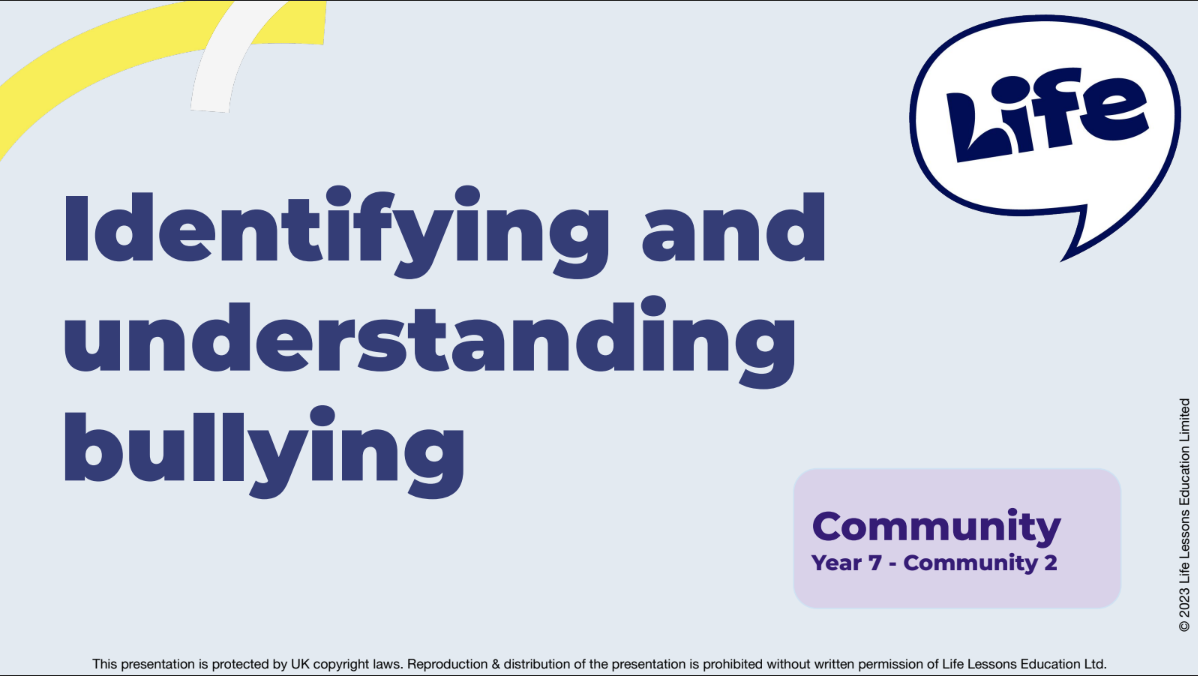
KS4: Influencing other
This is a year 10 lesson about being influenced and influencing others. The aim of this lesson is to support students to be able to identify and evaluate different influences in their lives and consider how they can positively impact others.
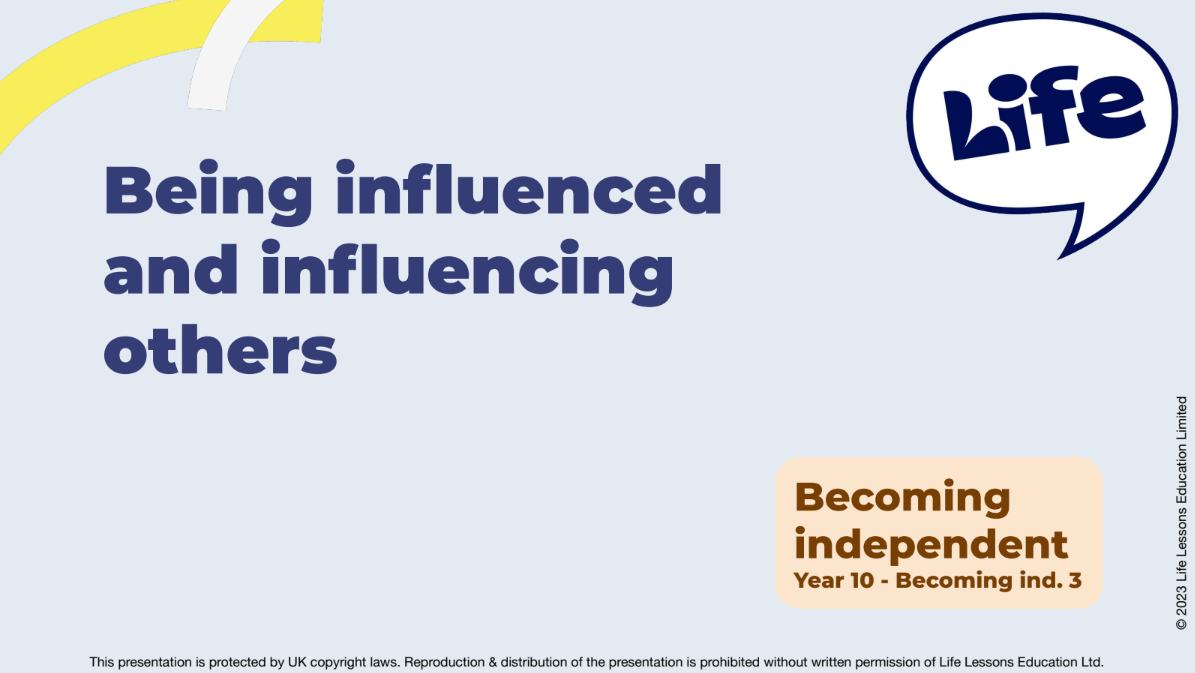
KS5: Social media
Here is a year 12 lesson on tackling the topic of using social media responsibly. This lesson encourages students to consider strategies for using social media safely and responsibly and also reminds students of the law around the sending of images online.
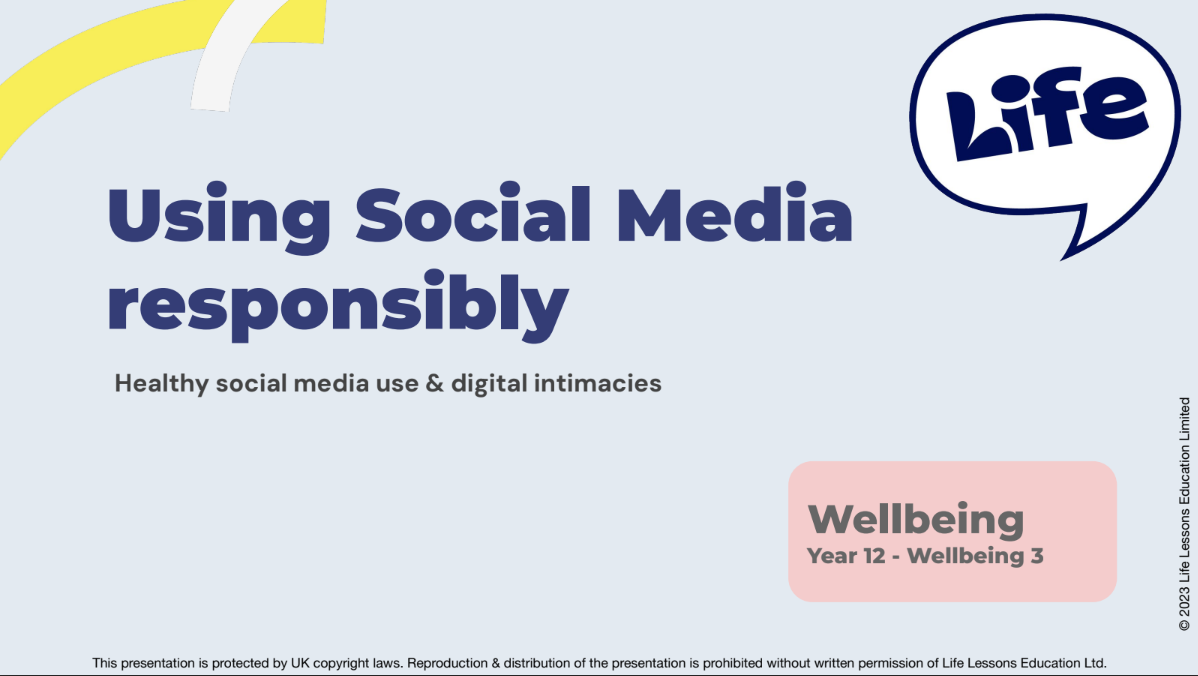
KS3: Contraceptive Methods
Here is a year 9 lesson on contraceptive methods. Students will have learnt about contraception in year 8 so this lesson builds on their existing knowledge to look at different methods to protect against pregnancy and STIs.
